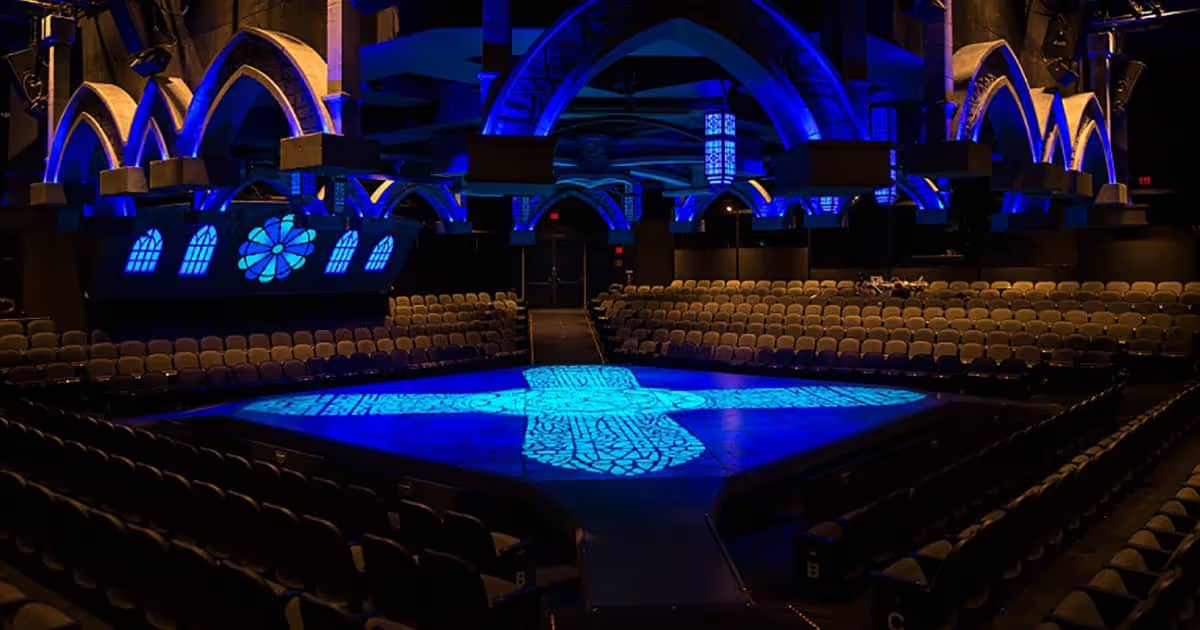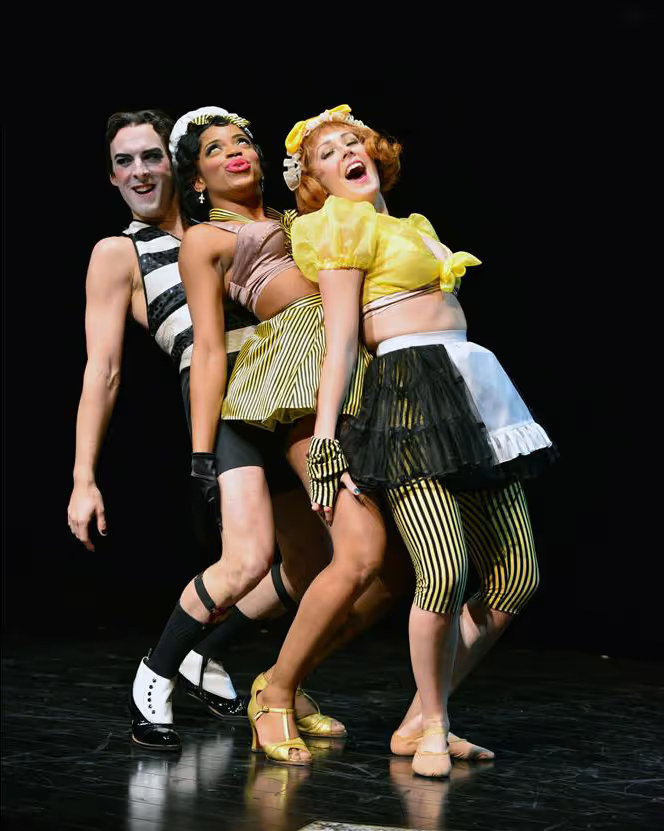Marriott shows a subtle ‘Cabaret’ can still pack power
“Cabaret” is now close to a half-century old, yet this Kander and Ebb musical, which is in continual production in one form or another on stages around the globe, remains so modern in both form and content it might have been created yesterday. And director David H. Bell’s strong, thoughtful revival, now at the Marriott Theatre, serves as a vivid reminder of the enduring power of this show whose book, by Joe Masteroff, is based on the stories of Christopher Isherwood and a play by John Van Druten.
Bell’s production also deftly dances around a major flaw of some recent versions: the attempt to magnify and intensify the aura of decadence that was such a distinguishing feature of Weimar era (pre-Hitler) Berlin in the late 1920s in order to create enough shock value for contemporary audiences. But attempts to up the ante in that way can feel desperate.
Bell, always a gifted storyteller, understands that subtlety and suggestion can be far more effective. And while he certainly is far from prudish, what stands out in his production is the transgressive, acutely dangerous nature of the politics (or, in many cases, people’s obliviousness to them), more than the sex. In fact, an apt subtitle for his “Cabaret” might be “The Awakening.”
Even the scene in which the naive young American novelist writer, Clifford Bradshaw (Patrick Sarb, very much the low-key observer), arrives in Berlin by train, resonates with meaning. As bags and passports are checked, the sound of a train whistle has a warning sound. And while Clifford (whose homosexuality and/or bisexuality is made quite clear) will join “the party” that is Berlin, he also will see the writing on the wall just in time, upbraiding his English “girlfriend,” cabaret performer Sally Bowles (Megan Sikora, a terrific dancer with a fittingly imperfect voice), for not seeing that something very ominous has taken hold in Germany.
The show also puts a slightly different spin on the all-important character of the sardonic, shape-shifting Emcee (Stephen Schellhardt), giving us more of a practiced satirist than a sexual grotesque. In the “Two Ladies” threesome, the whole stage becomes a bed with sheets as the backdrop for suggestive shadowplay. There is a real resentment and anger in the “Money” anthem. And in “If You Could See Her,” his endearing dance with a gorilla in a polka-dot dress (the stand-in for the Jewish “other”) is ideally done.
Bell also has cast a marvelous dramatic actress, Annabel Armour, in the role of Fraulein Schneider, the Berlin landlady who has survived decades of chaos, and who realizes her late-life romance with Herr Schultz (Craig Spidle), a prosperous German-Jewish fruit dealer, cannot continue. Armour’s renderings of the show’s most brilliant philosophical songs, “So What?” and “What Would You Do?,” are superb.
Jameson Cooper is a charmer with a vicious temper as Bradshaw’s “friend,” Ernst Ludwig. Christine Sherill is an exceptionally glamorous prostitute who becomes a true Nazi whore in her fervent rendition of “Tomorrow Belongs to Me.” And the ensemble of Kit Kat Club “girls” and “boys” dance up a storm thanks to Matt Raftery’s stylish choreography. Yes, come to the “Cabaret.”











